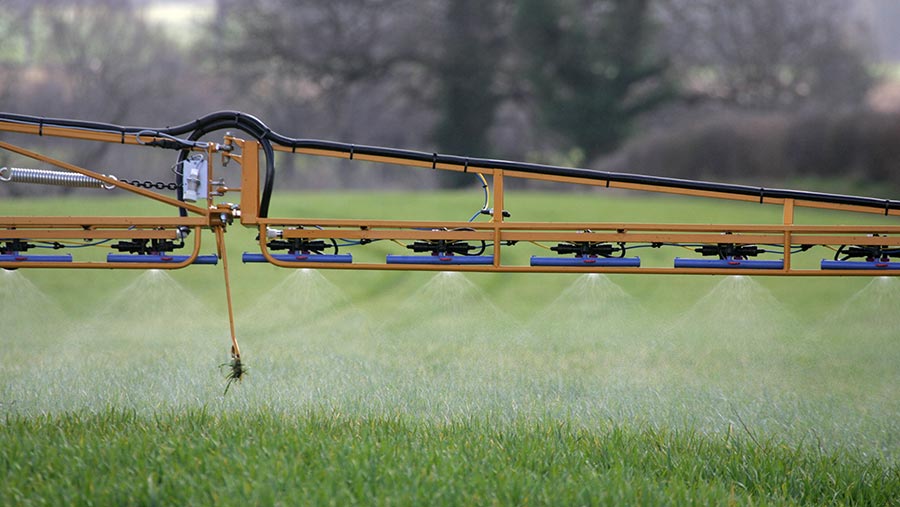Politicians face ‘critical choice’ on food security, warns scientist
 © Tim Scrivener
© Tim Scrivener A top scientist is waiting to hear whether MPs will probe the “urgent need” for additional government investment in crop protection.
Agricultural entomologist Toby Bruce – a professor at Keele University – presented his research on food security, environment and crop protection to the House of Commons Science and Technology Committee late last month.
See also: Why growers must reduce reliance on pesticides
Prof Bruce was one of just 10 speakers selected from 80 submissions to the committee’s My Science inquiry – which gives scientists and the public the opportunity to highlight important topics they believe deserve greater scrutiny.
Resistant pests and the loss of active ingredients to UK farmers mean there is an urgent need for investment in innovation in crop protection, he said. It is vital to bring new products to market and provide knowledge exchange for farmers tackling these challenges.
‘Alarming loss’
Prof Bruce, who was awarded a £1.1m grant last year to investigate crop pests in Africa, said: “I would like to draw your attention to the alarming loss of tools for farmers to protect their crops from pests and diseases. This costs billions of dollars in losses to global harvests.”
A recent NFU report found restrictions to pesticide use in the UK could lead to a 36% drop in overall UK farming profits, said Prof Bruce. The UK already imports half its food supply, he added. This figure will rise unless action is taken.
“If we take our eye off the ball with crop protection, we will become even more import-dependent. While it may be possible to import cheap food for the foreseeable future there are questionable ethics about our environmental footprint of importing our food from abroad.”
Environmental effect
MPs are expected to launch inquiries into three of the 10 topics presented by scientists. Committee chairman Norman Lamb MP asked Prof Bruce what could be achieved by an inquiry into crop protection and food security.
He replied: “The choice we have at the moment is having to choose between food security and the environment, so we need to find a way forward in which we can safeguard our crops without environmental impact, partly through smarter regulation to bring more inventions on to the market.”
Prof Bruce added: “There is a critical shortage of new treatments, but there is also underinvestment in this area. It is a major challenge we face this century – how do we feed the world without wrecking the environment in the process?”
